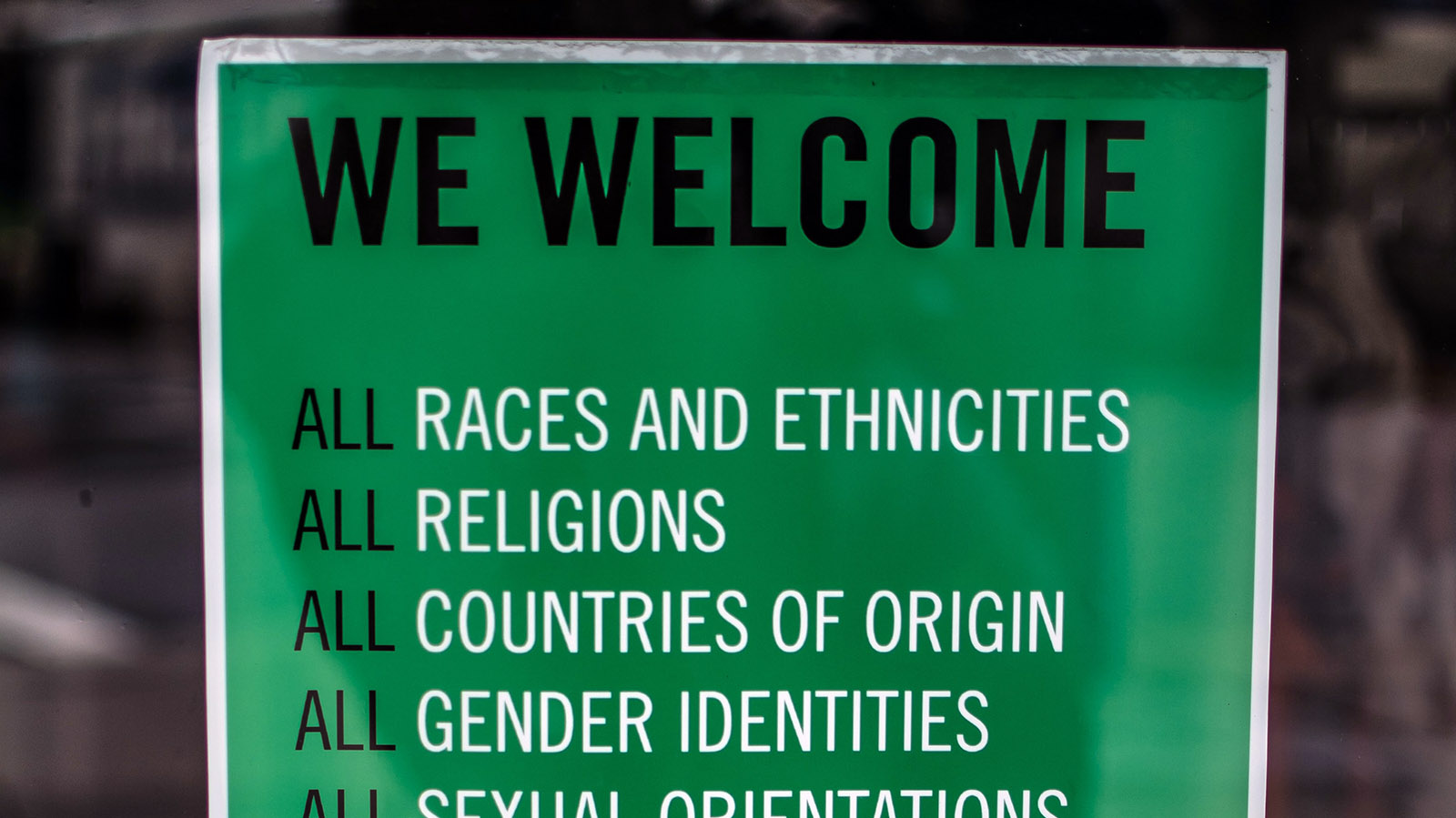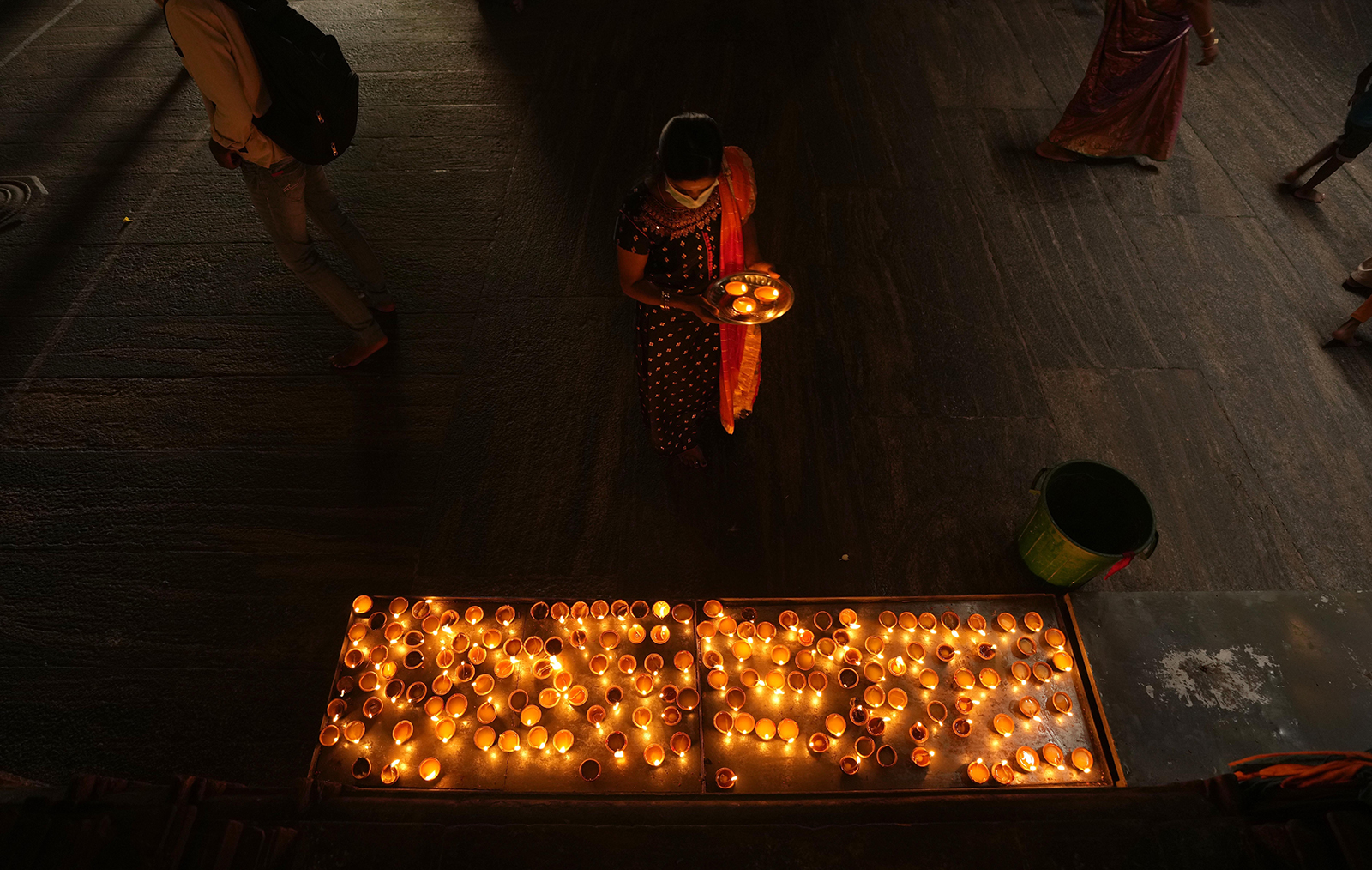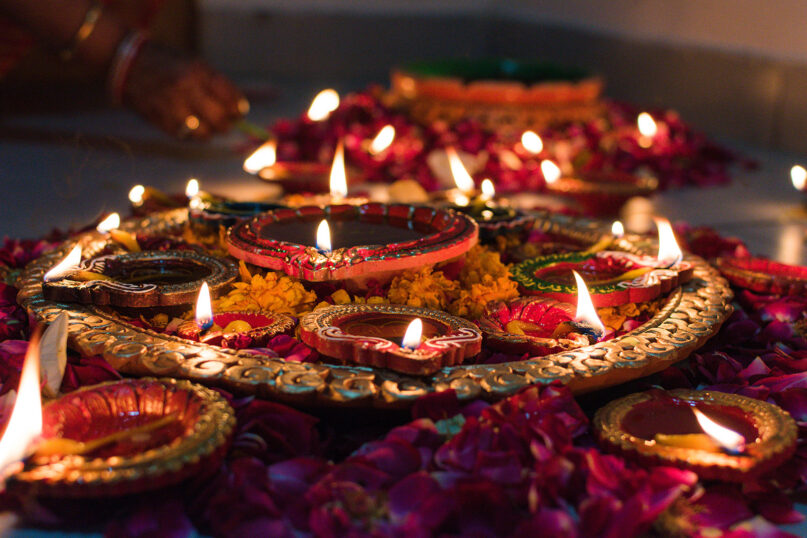(RNS) — Last week I received two requests asking me to participate in two separate workplace meetings on Oct. 24. These two emails left me feeling angry, frustrated and invisible all at once. Here’s why.
Diwali, a major holiday celebrated by about a quarter of the world’s population, including Hindus, Sikhs and Jains, falls on Oct. 24 this year. Diwali is part of a five-day holiday, with each day carrying a particular meaning to different religions and regions of India and other South Asian countries — and in the worldwide South Asian diaspora. In my particular tradition, as a Gujarati, the day after Diwali is the Hindu New Year. These are days on which I cancel class, and many others take time off, to celebrate with family and community.
Those of us who celebrate Diwali are not alone in having our holidays ignored: Jewish Americans took to social media last week to describe a lecture about microaggressions, a fall social about “belonging” and even Michigan’s statewide K-12 “student count day” — all scheduled for Yom Kippur, a somber day of prayer and fasting.
As it happened, both of the meeting requests I’d received were about DEI work. The acronym DEI — diversity, equity and inclusion — encompasses the efforts that workplaces and schools are making to protect, promote and welcome the participation of all kinds of people as colleagues, employees, students and community members. DEI initiatives typically focus on race, sexual orientation and gender. Often, DEI professionals have neither the knowledge nor the comfort level necessary to include religion in how their workplaces handle diversity, even though religion is an essential part of personal and community identity.
RELATED: Why ‘Merry Christmas’ is better than ‘Happy Holidays’ for Americans of all faiths
When I brought the meeting conflict to the attention of one workplace, the executive apologized and said they would make sure the meeting would not be held on Diwali — but the DEI leader never even acknowledged my email. The other workplace hasn’t acknowledged my correspondence but continues to be in touch about other matters. I think they are worried, don’t want to offend, and, frankly, don’t know what to do.
Silence isn’t a solution. Not responding tells me you don’t care, you hope it goes away, and you don’t want the topic to be brought up again. It is the silence of the middle school teachers who didn’t intervene when my classmates teased me for “praying to cows.” It’s the silence, unfortunately, of how too many American workplaces, schools and communities have responded to the post-1965 increase in American religious diversity.

Photo by Brittani Burns/Unsplash/Creative Commons
In most places, the response to more religious diversity has been “less” religion — that is, to restrict words and activities that acknowledge any religion. That approach hasn’t gotten us anywhere: It’s upset some religious communities, particularly Christians, without making other groups feel any less excluded. And for religious minorities, the message is still: You are invisible, and you don’t really matter.
It has deepened the sense that we can’t talk about religion, and it has left fewer and fewer Americans with the vocabulary and understanding to talk about religion. So even in settings where we absolutely should be accounting for and talking about religion — including DEI initiatives — we don’t even talk about faith.
How do leaders in the DEI space not know about Diwali? Both workplaces have numerous employees and consumers who celebrate Diwali — and, even if they didn’t, it is a holiday celebrated by millions of Americans. When it comes to holidays, the information you need is not difficult to find. There are even public “interfaith” calendars, on platforms like Google, you can subscribe to. Armed with that and a rudimentary understanding of who’s in your workplace community, you’ll be doing, sadly, better than most.
You can use the internet to learn enough about the holidays to know, for example, why you shouldn’t wish someone a “happy Yom Kippur.” You can discover which important holidays are more than one day long. (For example, even if your calendar indicates a single day as “Eid,” many Muslims observe it as a two- or three-day holiday.)
Remember that not every conversation about holidays is about “days off.” Years ago, not long after I earned tenure, my then-department chair scheduled an important meeting on Diwali — a meeting that would shape the direction of the department, and decisions affecting me and my students would be made. When I alerted her to the conflict, the chair told me I could skip the meeting. But that missed the point: Keeping the faculty meeting on my holiday denied me the opportunity to have my voice heard. She shouldn’t have excused me; she should have moved the meeting.
This is what Christian privilege looks like. No one may be actively trying to “discriminate” or exclude religious minorities; the exclusion comes from not knowing — and the sense of not having to know — about our neighbors’ faiths. And it’s not just meeting schedules: U.S. legal and cultural standards cause Christian social realities to be accepted as common sense, with other religions being accommodated only sometimes and only if it’s convenient.

An ethnic Tamil woman holds a tray of oil lamps during Diwali, the Hindu festival of lights, in Colombo, Sri Lanka, Nov. 4, 2021. Diwali is one of Hinduism’s most important festivals. (AP Photo/Eranga Jayawardena)
DEI directors and their staffs are working to combat precisely these kinds of “discrimination.” But all too often, religion is their blind spot. Too many DEI professionals have neither the knowledge nor the comfort level necessary to include religion in their investigations into how their workplaces handle diversity. If they need help, there are plenty of experts to consult.
We all need to be conscious that religion is an essential part of personal and community identity. We need to ask our executives and DEI directors: Do you see religion among the diversities in your workplace, and do you understand why it is important? Are you including religion in your climate surveys and needs assessments? Do you consider ethnoreligious identities when you’re creating focus and affinity groups?
RELATED: Meet the Hindu god Rama, an immigrant
If your DEI team is not doing these things, they are not doing all the work they were hired to do — and their silence and lack of knowledge are speaking volumes to the religious minorities around you.






